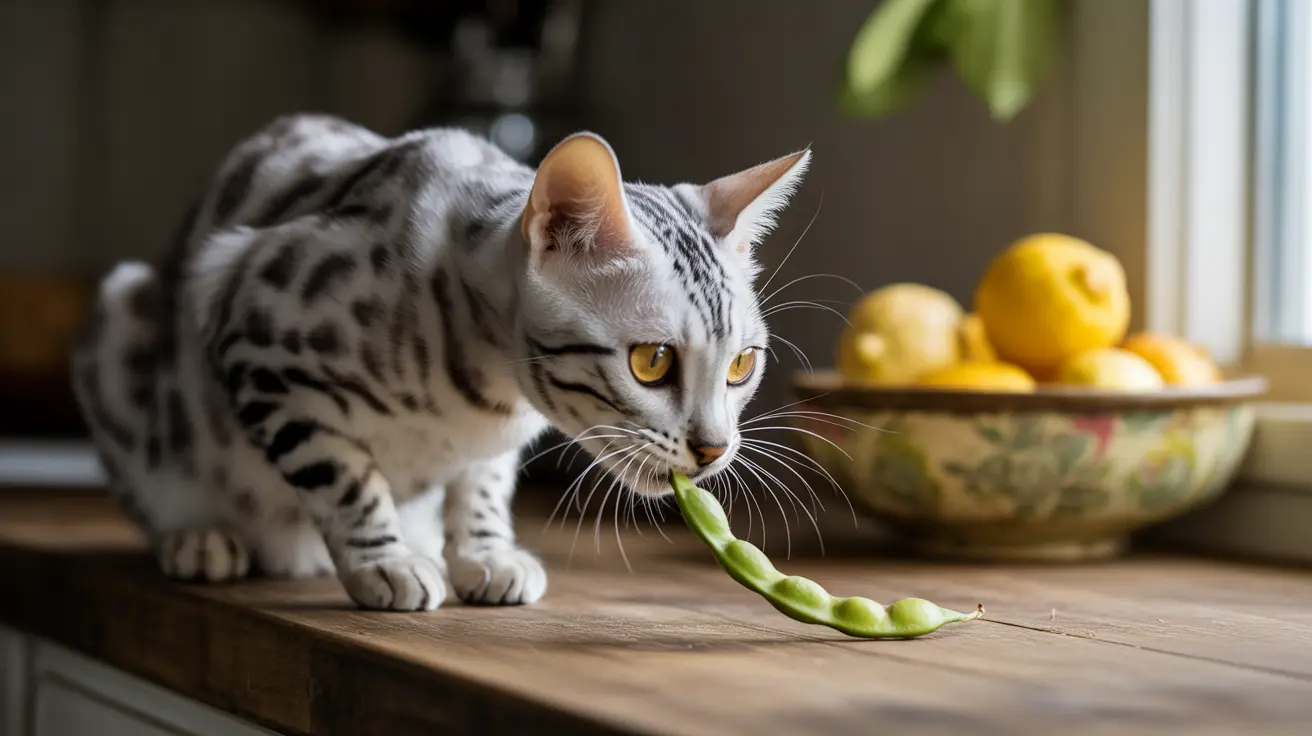If you're a cat owner who enjoys snacking on edamame, you might wonder whether sharing these young soybeans with your feline friend is safe. While cats can technically eat edamame in small amounts, there are important considerations about its role in their diet that every pet parent should understand.
As obligate carnivores, cats have specific dietary needs that primarily revolve around animal-based proteins. While edamame isn't toxic to cats, it's essential to know when and how to offer this plant-based snack safely, as well as understand its potential benefits and risks.
Understanding Edamame and Its Nutritional Profile
Edamame consists of immature soybeans that are typically served steamed or boiled. These legumes contain plant-based protein, fiber, and various vitamins and minerals. However, the nutritional benefits that make edamame healthy for humans don't necessarily translate to feline nutrition.
The protein in edamame lacks crucial amino acids that cats need, particularly taurine, which is only found in animal sources. Without adequate taurine, cats can develop serious health issues affecting their heart and vision.
Safe Ways to Serve Edamame to Cats
If you decide to offer edamame to your cat, follow these essential guidelines:
- Only serve plain, cooked edamame without shells
- Avoid any seasonings, salt, or oils
- Remove all pods to prevent choking hazards
- Start with a single bean to test for reactions
- Limit treats to no more than 10% of daily caloric intake
Potential Risks and Concerns
Digestive Issues
The high fiber content in edamame can cause gastrointestinal problems in cats, including:
- Bloating
- Gas
- Diarrhea
- Constipation
Allergic Reactions
While rare, some cats may experience allergic reactions to soy products. Watch for symptoms such as:
- Skin irritation
- Excessive scratching
- Vomiting
- Hair loss
- Ear infections
The Role of Edamame in a Cat's Diet
Edamame should never replace regular cat food or become a dietary staple. Cats require a balanced diet primarily consisting of animal protein, which commercial cat foods are specifically formulated to provide.
If you choose to offer edamame, treat it as an occasional snack rather than a regular part of your cat's diet. This approach helps avoid potential nutritional imbalances and digestive issues.
Frequently Asked Questions
Can cats safely eat edamame, and in what form should it be offered?
Yes, cats can safely eat plain, cooked edamame beans without the pods. Never serve them with seasonings, salt, or oils, and always remove the shells to prevent choking hazards.
What nutritional benefits does edamame provide to cats, and is it a good protein source for them?
While edamame contains plant-based protein and some nutrients, it's not an ideal protein source for cats. Cats require animal-based proteins that contain essential amino acids like taurine, which edamame lacks.
What are the potential digestive risks or allergic reactions cats might have from eating edamame?
Cats may experience digestive issues like bloating, gas, diarrhea, or constipation. Some cats might develop allergic reactions, including skin irritation, vomiting, or ear infections.
How much edamame can I give my cat without risking health issues, and should it replace regular cat food?
Edamame should only be given as an occasional treat, limited to 1-2 beans at a time. It should never replace regular cat food, as it doesn't provide the complete nutrition cats need.
What signs should I watch for that indicate my cat is having a negative reaction to edamame?
Watch for signs of digestive upset (vomiting, diarrhea), allergic reactions (scratching, skin inflammation), or any unusual behavior. If you notice these symptoms, discontinue feeding edamame and consult your veterinarian.
Conclusion
While cats can eat edamame in moderation, it's best to stick to their regular, meat-based diet for optimal health. If you choose to offer edamame as a treat, do so sparingly and monitor your cat for any adverse reactions. When in doubt, always consult with your veterinarian about introducing new foods to your cat's diet.






